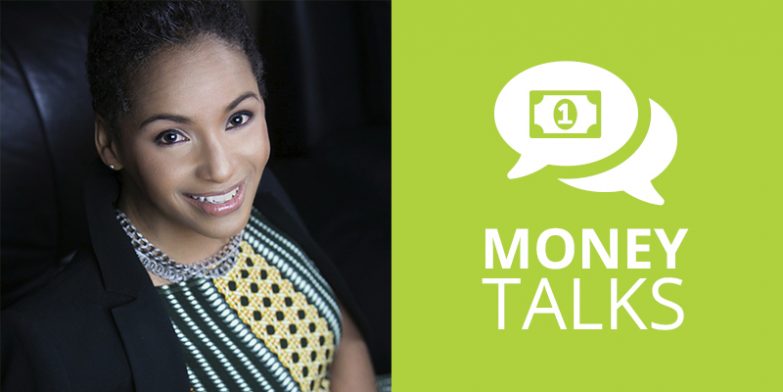What were your first experiences with money?
My early money experiences were all about saving money and being resourceful with how I spent money. I remember that we only bought things on sale. My mother considered it wasteful to pay full price for anything; my favorite cereal, clothes, vacations, etc. No Sugar Pops, only Sugar Puffs. Only clothes off of the Final FINAL sales rack. I can’t even count the number of timeshare presentations I had to listen to before we were allowed to unpack our bags and hit the beach. Just about the only thing that we didn’t look for a sale on or pull out a coupon for was gas. But, that is only because we drove to all of our vacation spots and it was more efficient to put higher quality gas into the car!
What were the key messages around money that your family instilled in you?
Despite being born in 1974, the key money messages that I received were all out of the great depression! Well, certainly it wasn’t my experience, but it was that of my mother. She was born in 1942 as the youngest of 11 children. We are African American and both my grandparents were deaf. Job opportunities were scarce and the pay was even lower for my grandfather, who was in construction. In fact, the only reason they had stable housing was because he had built their home. With 10 siblings, the point is, money and resources were a scarcity for my mother.
So, when it came to money it was always an anxiety-filled conversation, as if we were going to lose it all tomorrow, and the key money message that came out of that fear was save, save, save like a Rockefeller. I was taught to be very resourceful even as my parents progressed professionally and became increasingly financially secure. We were even the first African American family in an upper-middle-class all White community by the 1980s. In my life, we had everything that we needed, but for my parents, they were still operating out of a survival mentality. We had to be steadfast and resourceful, at all times. As I continued to grow, I truly proved to be my parent’s child. I had high expectations and good taste, but knew that I had to always find a good sale! I could do and did do just about everything I wanted…just on a budget.
In college, I recall becoming anxious about graduation and how I was going to provide for myself as I made the transition to graduate school. I was a scholarship athlete and had saved some money in the bank, so I had a small nest egg to fall back on. Something, for which I later learned was pretty advanced for my age, but I was still so very nervous. One day, in particular, I was planning some next steps, and I could feel my heart rate increasing. I tried to shake it off but it was such a persistent feeling. I took a deep breath and asked myself, “why am I so anxious?” I realized it wasn’t me who was really anxious, it was my Mom. I immediately called my Mom and said, “thanks, but no thanks. I’ll keep the resourcefulness, but I’m sending back the anxiety.” It was a learning moment for both of us.
What is your current relationship with money like?
Still, for most of my adult life, I lived with a little bit of an imposter syndrome. While I had some money and, in many cases, was more financially stable than my peers, I never felt comfortable with my knowledge of finance. But, one amazing morning, while looking out over the Chicago skyline it hit me, I am okay and I have enough. If I want more, I can get more. But, what is most important to me is to know what I am driving towards. I found my “Why” for why I want to manage my money, and then I centered on the how to do that in a way that really works for me. I honed my money style. Re-shaping my money messages, and unlocking my money style, I am truly my own CFO, and I really enjoy my relationship with money. I am able to live my passions and my life. I still definitely know how to find a good sale, but I also know when and where to invest my money, be it in myself, in my values, or in the market.

